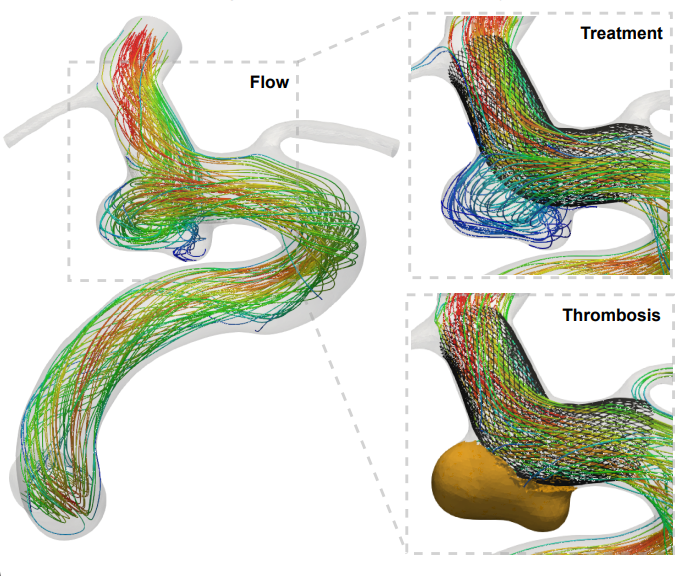A new study has revealed the cutting-edge progress in simulating blood flow within the intricate vascular system, which could revolutionise medical treatment and device innovation for vascular diseases in the UK.
Understanding and treating vascular diseases relies heavily on modelling vascular flow, but traditional methods are time-consuming and computationally intensive. The latest research, published in the Journal of the Royal Society Interface, examines advanced methods that speed up the simulation process while maintaining the necessary level of accuracy.
Researchers from The University of Manchester discovered that Reduced Order Modelling (ROM) – a technique for simplifying computational complexity – can effectively accelerate various types of vascular flow modelling issues with precision.
Additionally, they found that Machine Learning methods can address limitations in ROM techniques or introduce new simulation techniques to tackle a wide range of vascular flow modelling problems.
These findings have the potential to transform the field of vascular medicine in Britain. The study also emphasises the importance of these accelerated simulation methods for virtual trials, which are crucial for developing and obtaining regulatory approval for new medical devices.
By using simulation acceleration techniques, virtual trials can be conducted quickly and accurately, reducing the need for costly and time-consuming conventional clinical trials.
The research also calls for a collaborative effort to establish a benchmarking framework for simulation acceleration methods. This framework would set standardised metrics for evaluating accuracy and speed across different simulation approaches, promoting transparency and comparability in this rapidly evolving field.
